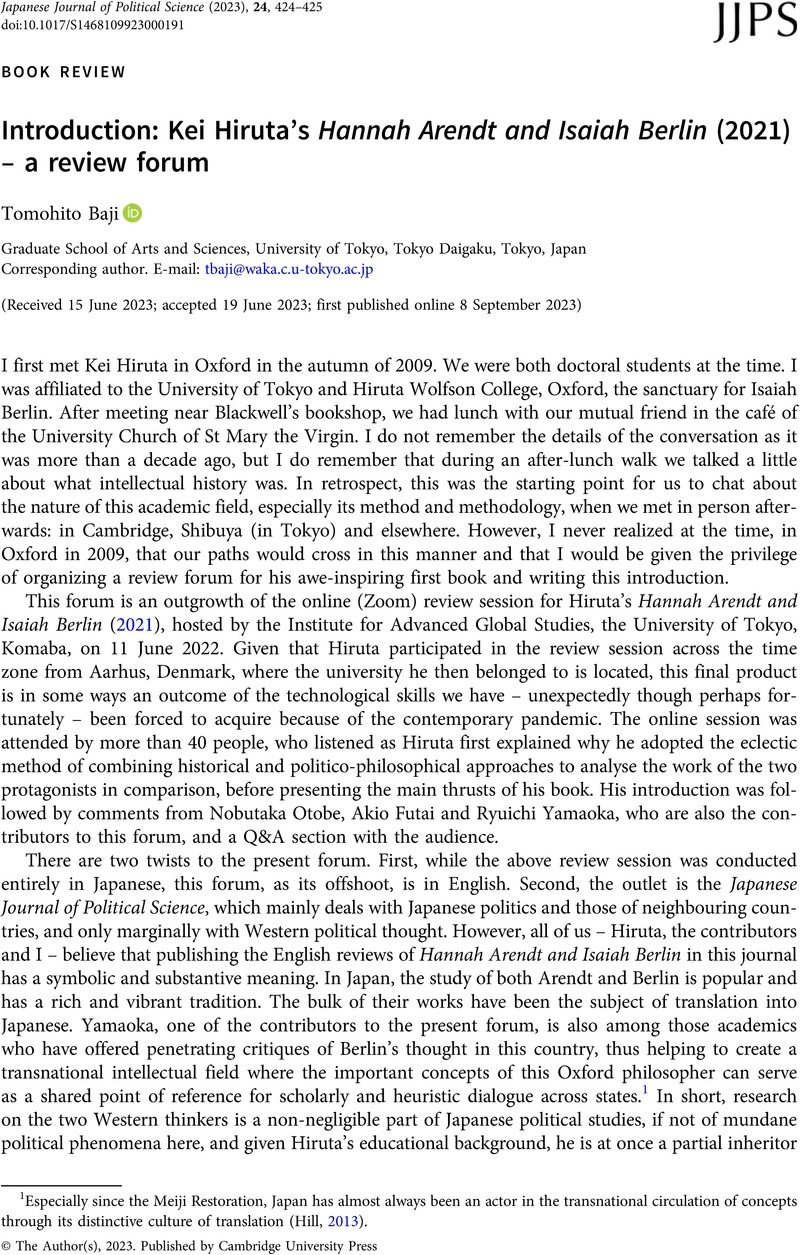No CrossRef data available.
Article contents
Introduction: Kei Hiruta's Hannah Arendt and Isaiah Berlin (2021) – a review forum
Published online by Cambridge University Press: 08 September 2023
Abstract
An abstract is not available for this content so a preview has been provided. Please use the Get access link above for information on how to access this content.

- Type
- Review
- Information
- Copyright
- Copyright © The Author(s), 2023. Published by Cambridge University Press
References
Hill, CL (2013) Conceptual universalization in the transnational nineteenth century. In Moyn, S and Sartori, A (eds), Global Intellectual History. New York: Columbia University Press, pp. 134–158.Google Scholar
Hiruta, K (2021) Hannah Arendt and Isaiah Berlin: Freedom, Politics and Humanity. Princeton: Princeton University Press.Google Scholar
Hiruta, K (2023) Fukuzawa Yukichi's liberal nationalism. American Political Science Review 113, 940–952.Google Scholar


